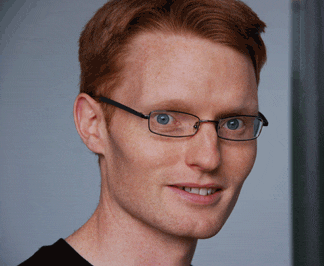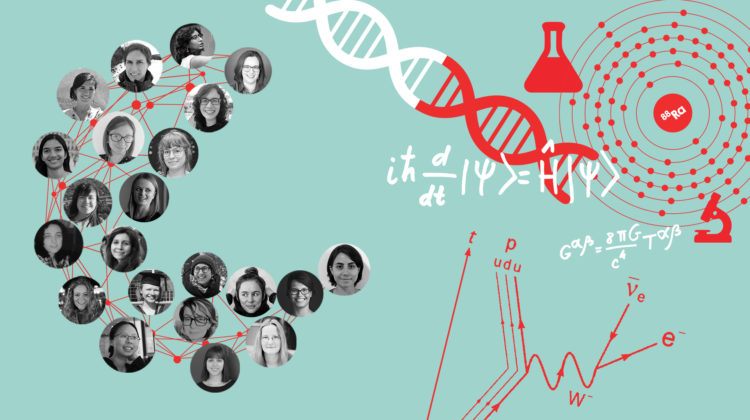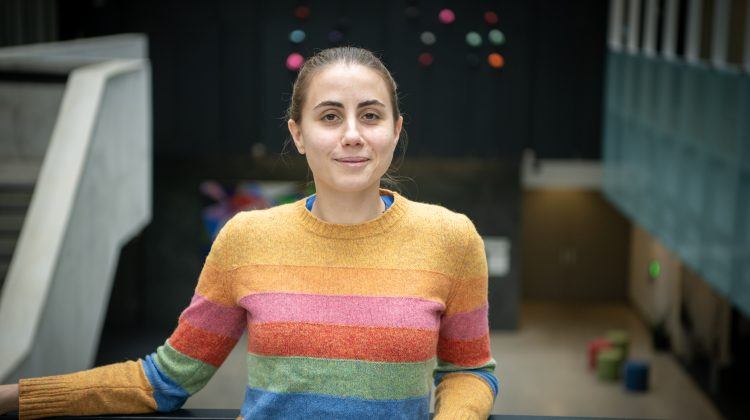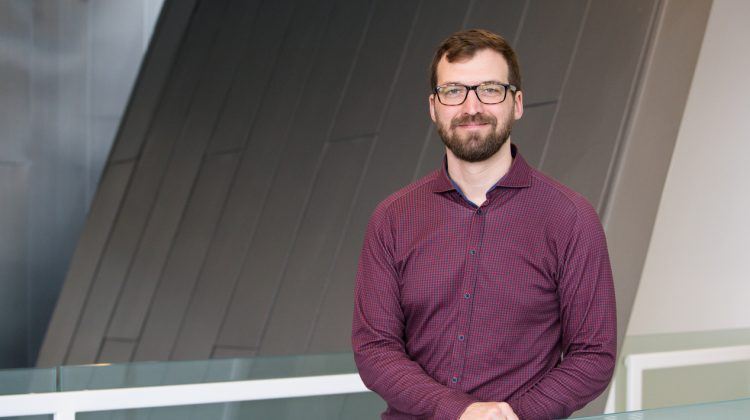Making Heisenberg's Uncertainty Principle Less Uncertain
A recent paper by PI postdoctoral researcher Roger Colbeck and colleagues has made Heisenberg’s uncertainty principle a lot less uncertain in some situations.

A recent paper published in Nature Physics by PI postdoctoral researcher Roger Colbeck and colleagues at several European universities has made Heisenberg’s uncertainty principle — one of the central (and strangest) features in quantum physics — a lot less uncertain in some situations.
One question addressed by the uncertainty principle is whether it is possible to predict both the position and momentum (or other pairs of observables) of a subatomic particle. In its original formulation, the uncertainty principle implies that it is not. However, the paper shows that in the presence of quantum memory, a device capable of reliably storing quantum states, it is possible to predict both precisely. Intensive research efforts are currently focused on producing such a memory and there is hope that one will be available in the near future.
To illustrate the main ideas, the paper outlines an imaginary “uncertainty game” in which two people, Alice and Bob, begin by agreeing on two measurements, R and S, one of which will be performed. Bob then prepares a particle in a quantum state of his choosing. Without telling Alice what he has done, he sends the particle (over a channel) to Alice. Alice performs one of the two measurements (chosen at random) and tells Bob which observable she has measured, though not the measurement’s value. Bob wants to correctly guess the measurement value. If Bob had only a classical memory (e.g. a piece of paper), he would not be able to guess correctly all of the time — this is what Heisenberg’s uncertainty relation implies. However, if Bob is able to entangle the particle he sends with a quantum memory, for any measurement Alice makes on the particle, there is a measurement on Bob’s memory that always gives him the same outcome. His uncertainty has vanished.

The paper provides a new uncertainty relation valid in the presence of a quantum memory. More precisely, it proves a lower bound on the uncertainties of the measurement outcomes which depends on the amount of entanglement between the measured particle and the quantum memory. This had been conjectured by former PI researcher J.C. Boileau and J.M. Renes in 2008 (http://arxiv.org/abs/0806.3984) but was unproven until Colbeck et al’s work.
There are a number of potential applications arising from this work, notably for the burgeoning field of quantum cryptography. Although it was realized in the 1970s that the uncertainty principle could be used as the basis for ultra-secure communications, most quantum cryptographic approaches to date have not made use of it directly. The results may also yield a new method of ‘witnessing’ entanglement. Creating entangled states between particles (such as photons) is notoriously difficult, and once created, the states are easily destroyed by noise in the environment. A more straightforward witnessing method would be of great value to experimentalists striving to generate this precious resource, a necessary step towards developing quantum computers.
___________________
i Entanglement is a property of two or more particles which links them such that when one particle is measured, it collapses the state of the other (no matter how far away it is). Certain observable properties of the particles are shared in the sense that a measurement of that property on one of the particles implies the value of that property on the other. However, these correlations cannot be classically explained and are often referred to as nonlocal correlations. Although counterintuitive, the existence of entanglement has been experimentally confirmed many times.
























































































